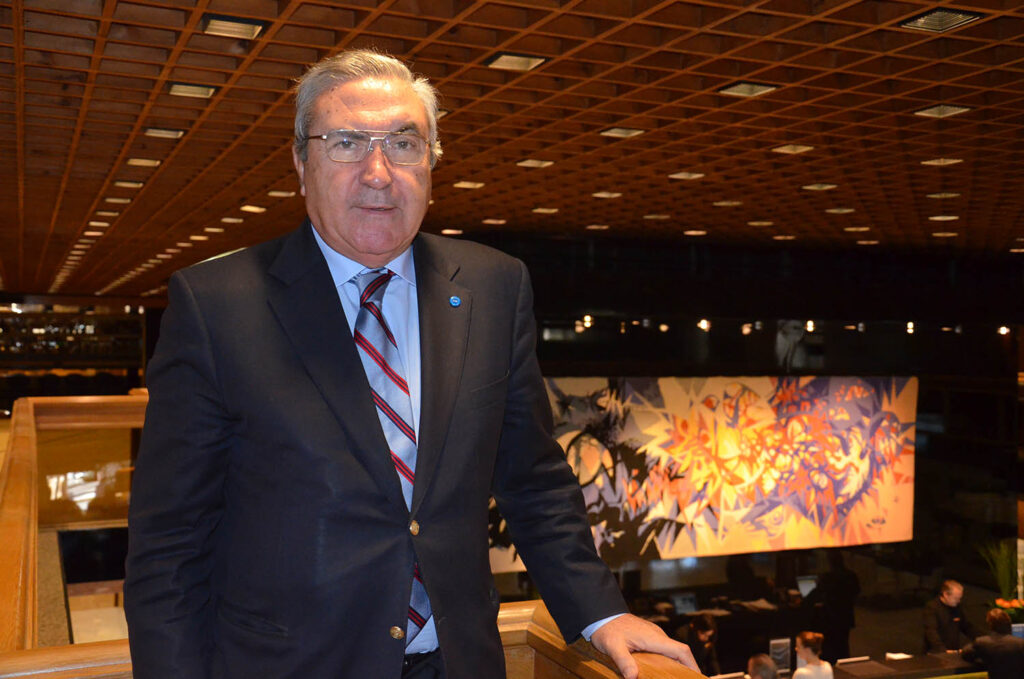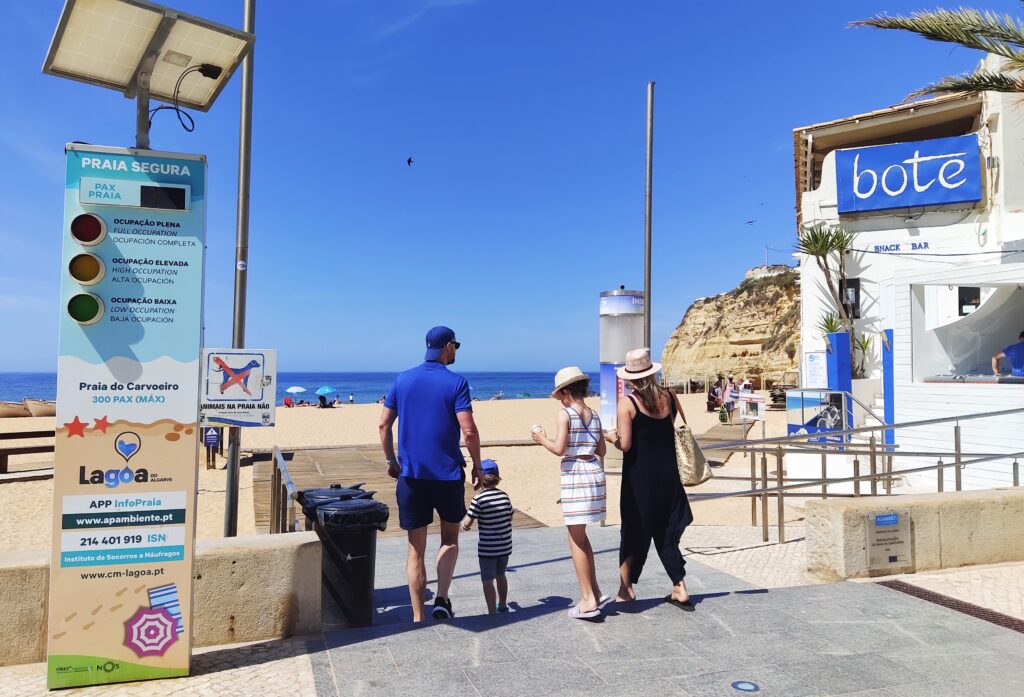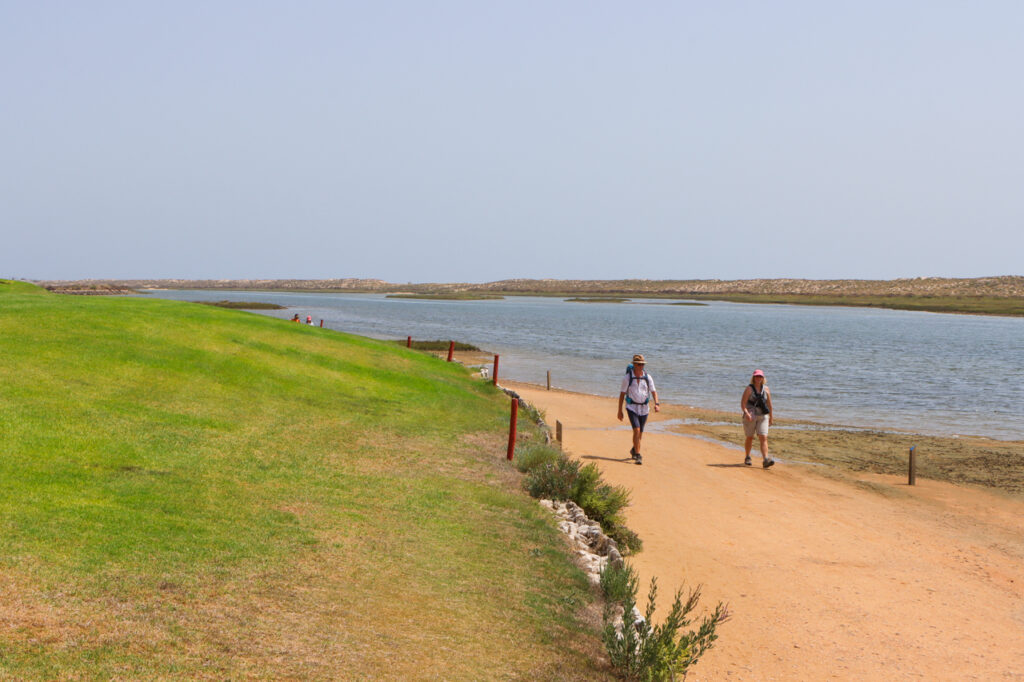The president of the Hotel Association of Portugal (AHP) considers that "there is a Gordian knot in air accessibility in Portugal" that affects Lisbon, but also other tourist regions, such as the Algarve.
For, argues Raúl Martins, «while the hub to Lisbon (because we know Lisbon is the hub from Portugal to the world), we have a difficult growth here».
The theme of Air Accessibility will be precisely one of those that will be debated, in a panel dedicated to it, during the 32nd National Congress of Hotel and Tourism, organized by AHP, at Nau Salgados Palace, in Albufeira, from the 10th to the 12th of November.
In an interview with Sul Informação, the president of the main national hotel association admitted that, in the main Portuguese tourist regions, the impasse has been overcome through «alternative solutions». «We are back to having situations of operators operating directly to the Algarve and that is good, because they are not conditioned to hub from Lisbon. Routes with various airlines have also been growing in Porto, in Madeira and the Azores we see announcements of new air connections every day», he explained.
For Raúl Martins, this is “an obvious strategy” for airlines that “know that there are tourists to these areas and, with Lisbon airport being congested as it is, they decide to fly directly to airports in other regions. Somehow, this will make up for this impasse in the situation of the hub of Lisbon”.
«If things go well, we will only have a new airport in Lisbon, or hub, which would be the most suitable, in three or four years' time». This means, in the opinion of the president of AHP, that, however, "it is very difficult to increase the number of tourists and tourist income in the country".
Only, defended Raúl Martins in his interview with Sul Informação, «the regions of the Algarve, Porto, Madeira, the Azores, are able and autonomous enough to create attractive conditions for companies to fly there, directly». In fact, he stressed, "everyone has been doing work in this direction."
And that, in the opinion of the hotelier and sector leader, «will be a very important path, in the next three or four years, so that the regions outside of Lisbon do not become dependent on this Gordian knot that has not yet been untied».
«2022 is going to be a good year» of Tourism
The motto of the National Congress promoted by AHP in Albufeira is «Tourism has a future!». But what about the effects of the pandemic, what consequences did it have in that future?
Raúl Martins considers that Portugal, with the level of vaccination reached and the measures to control the pandemic adopted, was «in an excellent position for the resumption of tourism to take place. We, in terms of vaccination, are the first in the world, and this is important in terms of the safety of those who want to visit us».
This situation “allowed, first the interior areas and then the Algarve, Madeira and the Azores, then Porto and now Lisbon, to gradually recover a reasonable occupation. Today we can say that we will have an average occupancy of around 50% of what was in 2019, I am saying that in all, the accumulated will still not have, but in October it happened that way. This gives us the expectation and hope that the recovery has begun».
"Of course, we have some difficult months of occupation ahead of us: November, December, January and February are months when normally the occupation is lower". But the president of AHP is optimistic and says he believes that "2022 will be a good and positive year." "Obviously we won't be at the 2019 level yet, but it's going to be a good year."
In fact, he added, in his interview to our newspaper, "it is with this expectation that we organize the congress, stating that tourism has a future." Because, he lamented, "throughout this time of the pandemic, it seemed that tourism was an activity in danger of extinction."
«But the human being is the main actor in tourism, it is to him that we dedicate our attention, and the human being, in the XNUMXst century, likes to travel, likes to have new experiences and likes to socialize. And therefore, as the pandemic becomes more under control, we will have more activity», highlighted Raúl Martins.
Type and attitude of tourists has changed a little
And, after the pandemic, the fears it brought, the habits it changed, are the tourists looking to Portugal of the same type? Or has it also changed?
The president of the Hotel Association of Portugal admits that «we have several examples that recent tourists are different». In Madeira, for example, «we had, throughout this summer, younger tourists».
According to Raúl Martins, what is happening is that «older tourists are still modest, they are still afraid to travel, even if they are vaccinated, so there is a change in their profile here».
On the one hand, there is a change in the age profile, “since it is the younger people who are traveling more. Or they are traveling as they used to, but the older ones are not traveling. And, within these, preferences are different, meaning that while seniors look for rest, rest and some sun, younger ones look for activity, they look for new experiences».
And, fortunately, «that Portugal also has. Over the last few years, we have placed a very diversified offer». There are «from fantastic walking routes, to bike paths outside the cities or situations of pure nature».
«Nowadays, in Portugal, there are several offers of this type and we know that hotels in the interior had, during the pandemic, a demand greater than what they had before. Therefore, we think that, as tourists are different and have a different profile, Portugal has an offer to capture them and this has been happening and will continue to happen», stressed the president of AHP.
With regard to the Algarve, Raúl Martins recalls the «infrastructures» that were created in the region to respond to this new demand, «from walkways, footpaths along the coast, for example from Quinta do Lago to Faro, adventure routes, routes of trekking». And then there is golf, which is traditionally important to reduce seasonality and that, this year, it has proven its importance again..
However, both in the Algarve region and in the neighboring Alentejo region, the hoteliers manager also emphasizes the role played by wine tourism, as a way of attracting new tourists, even outside the high season and further inland. "There is a situation that can favor the so-called low season, which is the fact that people today do not want large concentrations and even flee from places or times where there is a lot of concentration."
Who is Raúl Martins?
Raul Martins was born in Labrugeira, in Alenquer, 75 years ago, having developed his professional engineering and management activity at the construction companies Fernando Martins, SA, who developed, among others, the real estate project Encosta das Olaias, which won the award Valmor in 1982.
Since 1974, he has been a director of Altis, SA, having developed the projects for its Altis Suites, Altis Avenida, Altis Prime and Altis Belém Hotels, which includes the Feitoria Restaurant, awarded a Michelin star since 2012, and the Foz Residence development , in Port.
He took the Senior Management of Companies course at AESE.
He is currently chairman of the Board of Directors of ALTIS Hotels, has been connected for more than 40 years to the hotel business and since 2000 to associative life. He has been president of AHP – Associação da Hotelaria de Portugal since 2016, having previously held functions as chairman of the Supervisory Board and General Assembly of this association.
He was chairman of the Supervisory Board of the Lisbon Tourism Association, serves as vice-president of the CTP and is a member of the Committee of the Lisbon Tourism Development Fund, on behalf of AHP.
In 2018, he was distinguished by the Portuguese Government with the Gold Grade Tourist Merit Medal, for his more than 40 years of connection to the sector, both as an entrepreneur and in recognition of the associative work he has developed.






















Comments